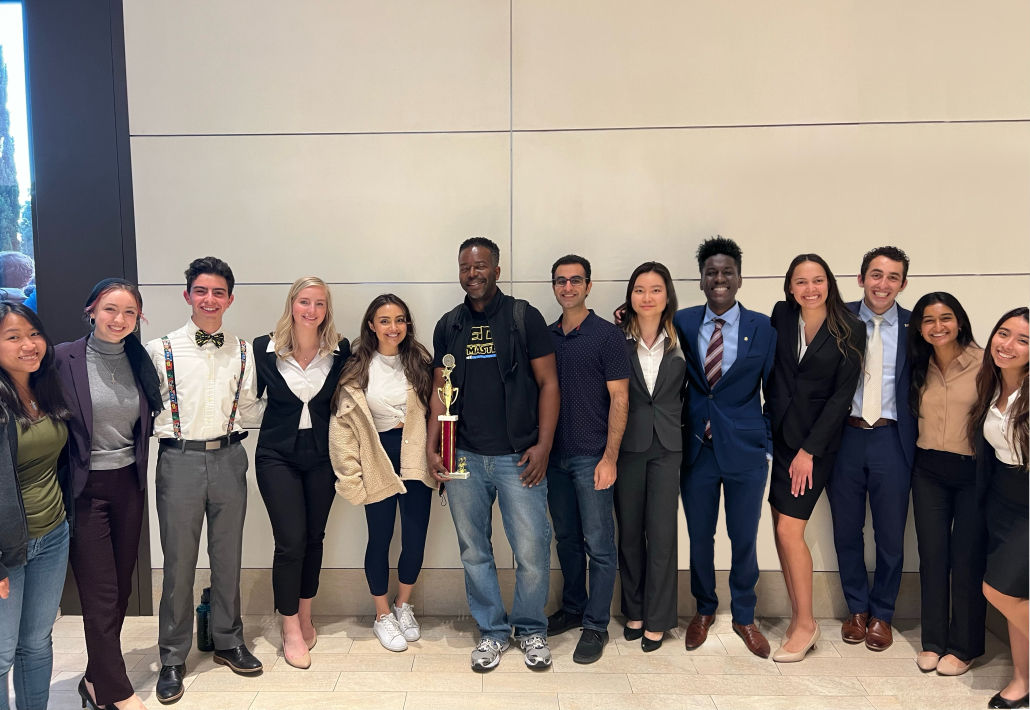Mock Trial takes on nationals

Early this month, the USC Mock Trial program advanced to the 2022 Mock Trial National Championships, competing in a network of over 400 collegiate programs to face the highest-scoring teams in the country. The National Championships were held in Lancaster County, Pa., from April 8 to 10, with Harvard University clinching a first-place victory and the University of Chicago finishing as the runner-up. In the competition, the teams were responsible for arguing a case about a drug overdose.
The USC Mock Trial program’s success began early this semester with the regional competition, where the team earned three separate bids to advance to the Opening Round Championship Series, when the maximum a program is allowed to use is two.
“That was already incredible, starting off the competitive season like that,” said Logan Barth, a member of the program and a freshman majoring in law, history and culture.
Team members have attended rigorous practice sessions since joining the team in Fall 2021 to prepare for the slate of regional and opening round competitions throughout the spring. This involved twice-weekly classes, scrimmages on the weekends and additional individual practice to improve courtroom performance, often reaching 25 hours of practice per week.
During the competitive season leading up to their advancement to Nationals, the team started meeting every day to hone their skills. Members preparing for the Lancaster tournament, including Joanna Ge, a junior studying accounting and business administration, saw the investment of time and effort as key factors to their success.
“You won’t do well in the real competition without getting yourself exposed to the real competition setting in scrimmages, because simply having your script written down is not enough,” Ge said. “It’s really important that you deliver it well in front of the jury or the judges, especially. That’s what you do in real court.”
The team was first created in 2001 by coach Olu Orange, a top rated civil rights attorney, and includes four assistant legal coaches — Chris Bloom, Mikayla Wasiri, Hooman Kazemi and Brittnee Bui — who guide participants closely and provide specific sets of comments to members to improve before the next tournament. The first two years that the team entered competitions, they won first place trophies at national tournaments.
Yet beyond the surface of an award-winning team exists another component in the Mock Trial course: to give students real-world legal experience through public interest advocacy. Many of the opportunities offered within the undergraduate program are not accessible to many students at law school level, and are specific to the Mock Trial class, said Ambika Nuggihalli, a team member and a senior majoring in communications.
Program members have the opportunity to participate in several prominent civil rights cases, both in and out of the Los Angeles area. During the ongoing immigration crisis at the United States-Mexico border, the team made several trips to Harlingen, Texas to train immigration lawyers to go to trial and fairly represent individuals facing deportation.
Through the public interest advocacy branch, the Mock Trial team has also embarked on assisting on the Black Lives Matter class action lawsuit for mistreatment of protestors in the summer of 2020. Nuggihalli assisted on the case by putting together trial documents, scouring for video footage of protestors to create timelines and making graphics to be used by attorneys in the trial.
“Undergraduate students being able to get involved with this kind of work, being able to make change and be trusted to do work at this level is a big deal,” Nuggihalli said. “A lot of times, people will tell you that if you want to get into law, it’ll take you a long time to actually make a difference, but that’s not the case with USC trial advocacy. If you want to make a difference, you can do it right now and you can be a part of the bigger picture right now.”

